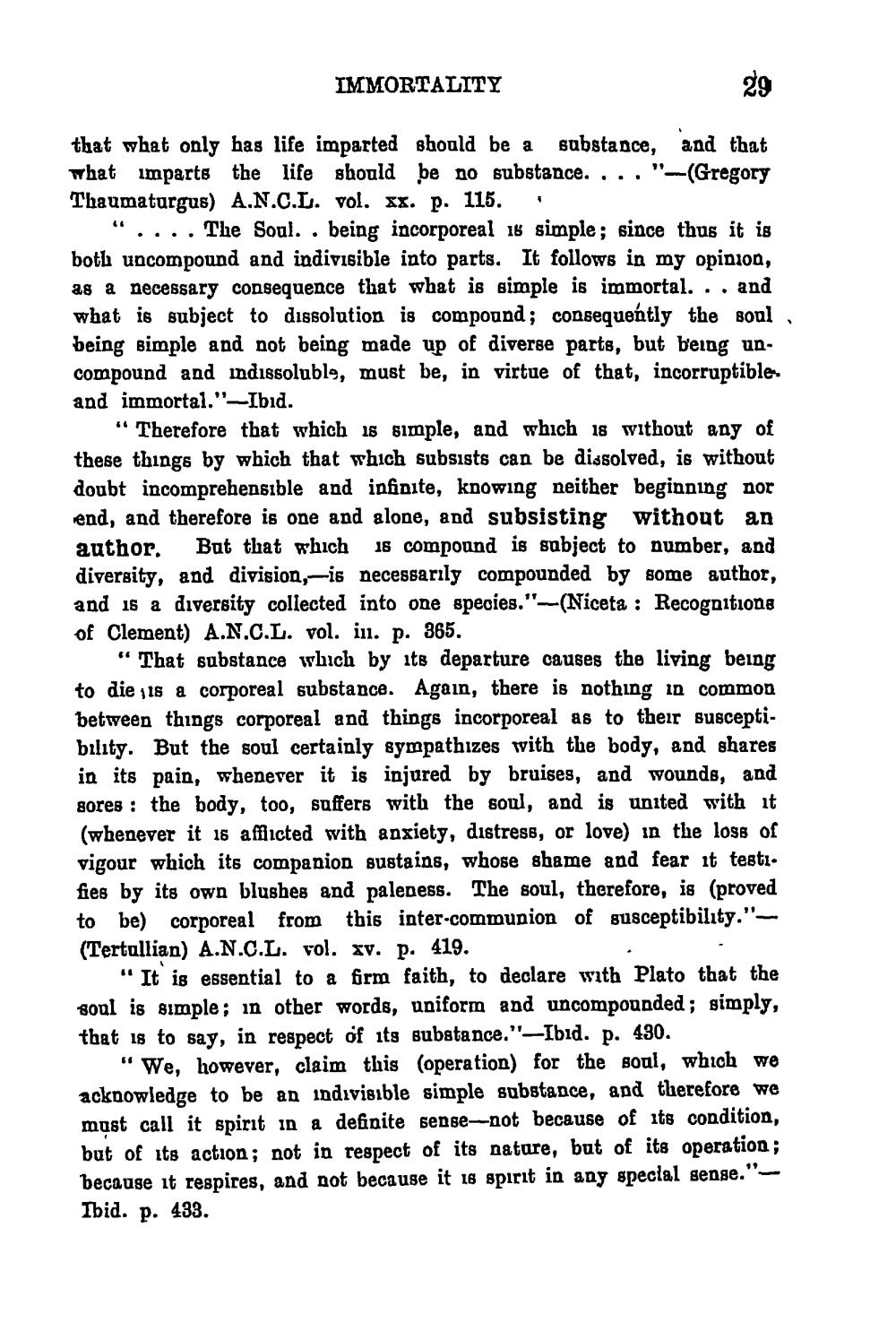________________
IMMORTALITY
that what only has life imparted should be a substance, and that what imparts the life should be no substance. . . . "-(Gregory Thaumaturgus) A.N.C.L. vol. XX. p. 115.
“.... The Soul. . being incorporeal is simple; since thus it is both uncompound and indivisible into parts. It follows in my opinion, as a necessary consequence that what is simple is immortal. . . and what is subject to dissolution is compound; consequently the soul being simple and not being made up of diverse parts, but being un. compound and indissoluble, must be, in virtue of that, incorruptible and immortal."-Ibid.
“ Therefore that which is simple, and which is without any of these things by which that which subsists can be dissolved, is without doubt incomprehensible and infinite, knowing neither beginning nor end, and therefore is one and alone, and subsisting without an author. But that which is compound is subject to number, and diversity, and division,-is necessarily compounded by some author, and is a diversity collected into one species."-(Niceta : Recognitions of Clement) A.N.C.L. vol. ill. p. 365.
"That substance which by its departure causes the living being to die is a corporeal substance. Again, there is nothing in common between things corporeal and things incorporeal as to their susceptibility. But the soul certainly sympathizes with the body, and shares in its pain, whenever it is injured by bruises, and wounds, and sores : the body, too, suffers with the soul, and is united with it (whenever it 16 afflicted with anxiety, distress, or love) in the loss of vigour which its companion sustains, whose shame and fear it testi. fies by its own blushes and paleness. The soul, therefore, is (proved to be) corporeal from this inter-communion of susceptibility." (Tertullian) A.N.C.L. vol. xv. p. 419.
" It is essential to a firm faith, to declare with Plato that the soul is simple; in other words, uniform and uncompounded; simply, that is to say, in respect of its substance."-Ibid. p. 430.
"We, however, claim this operation) for the soul, which we acknowledge to be an indivisible simple substance, and therefore we must call it spirit in a definite sense--not because of its condition, but of its action; not in respect of its nature, but of its operation; because it respires, and not because it 18 spirit in any special sense."Ibid. p. 433.




